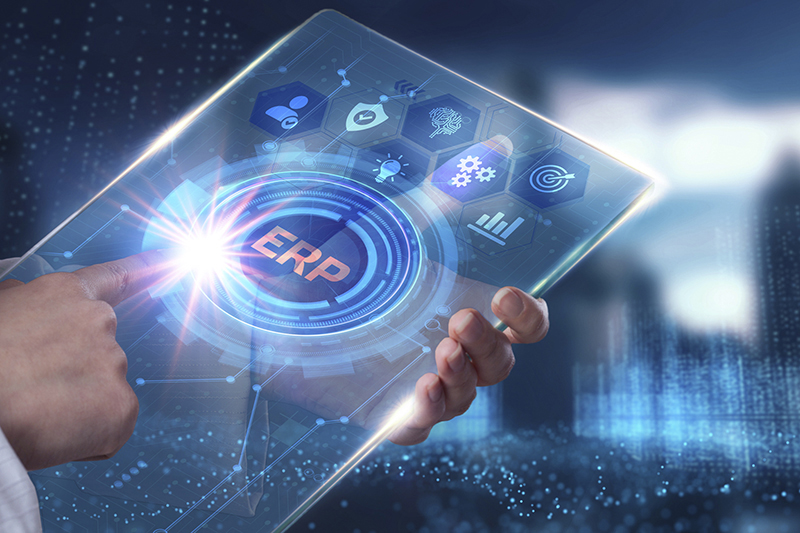The Textile Industry’s Digital Transformation: Embracing AI and ERP Systems in Malaysia
The textile sector has witnessed a dramatic transformation brought about by the infusion of innovative technologies like artificial intelligence (AI) and enterprise resources planning (ERP) systems. Textile firms in Malaysia are progressively incorporating these technologies to augment efficiency, optimize operations, and comply with stringent environmental regulations.
AI and ERP Systems: A New Era for Textiles
AI agents are the latest trend in the textile industry as they deliver smart solutions that rearrange production schemes for the firm. These AI-enhanced systems, e.g. GenAI and DeepSeek, are used for forecasting the market, supply chain management, and product improvement. Notably, the employment of AI in the textile field is not a temporary phenomena but an unconditional requisite for the firms to stay afloat in the market.
Albeit, ERP systems are at the center of the entire process of managing enterprise resources planning. These are the platforms that allow textile firms in Malaysia to synchronize different functions like inventory management, order processing, and financial accounting. The operation of ERP systems means that departments communicate effectively with each other during the process thus, productivity efficiently and operational costs are reduced.
The Role of MRP and MES in Textile Manufacturing
Material Requirements Planning (MRP) systems are vital for organizing the production schedule and for guaranteeing the presence of the necessary materials for manufacturing. In Malaysia, textile manufacturers are turning to MRP systems to enhance their production processes and efficiently meet customer requirements. In addition to that, Manufacturing Execution Systems (MES) are utilized to supervise and regulate production activities instantaneously, thus, ensuring that quality levels are upheld.

Incoming Quality Control (IQC) procedures have also been improved version of AI and ERP systems. These devices allow textile manufacturers to carry out detailed inspections and maintain ISO compliance which, in turn, makes certain that their products are in line with international quality norms.
The Impact of AI on Lab Dip Processes
Lab dip processes, which involve creating sample dyes for color matching, are being transformed by AI technologies. AI agents can analyze color data and predict the best dye combinations, reducing the time and resources required for lab dip processes. This innovation is particularly beneficial for textile firms in Malaysia, where efficiency and precision are paramount.
OpenAI and the Future of Textile Innovation
OpenAI is leading in the field of creating AI technologies that change the textile sector direction. It is providing cutting-edge AI solutions for all concerned in the textile field, therefore, facilitating the introduction of changes and the ability to the firm to deal with the demand for innovations on the market. The unceasing progress in the field of AI will guarantee the vibrant growth of the textile sector.
The Impact of AI on Lab Dip Processes
Lab dip processes, which are the processes of creating sample dyes for color matching, are being changed by AI s technological advancements. AI agents can analyze color data and predict the best dye combinations, reducing the time and resources required for lab dip processes. This technological advancement is immensely relevant for the textile firms of Malaysia, which require precision and efficiency in their manufacturing processes.
OpenAI and Key in Innovation is the Future of Textile
OpenAI has recorded impressive results so far regarding developing AI solutions that have a tangible impact on the textile industry. With the help of OpenAI that offers cutting edge AI resources, textile industries are being transformed with new technology and are reacting to modify market demands. Thanks to the continuous increase of AI available resources, the textile industry is in a position of constant expansion and development.
To Be Sure, the textile industry has now accepted AI and ERP systems, and this implies both challenges and opportunities. Companies will have to put in place the training and development required to make sure their employees have the skillset necessary to work with such technologies. Furthermore, the requirement for compliance with environmental regulations has speeded the adoption of practices and the use of technologies that are eco-friendly. is
In Malaysia, the textile sector rides on this wave of change with a strong commitment. The installation of AI and ERP systems has not merely led to efficiency but has also opened new doors for development and creativity. The green processing of the textile enterprises helps to live sustainably for the generations to come. AI and ERP pinpointed as the key players in industrial revolution titles that will be written in the stars.
A cloud-native ERP widely adopted by business in Singapore, Malaysia, Hong Kong and China. With over 6,000 customers in the region, aiM18 gains positive feedbacks from customer across different sectors, from manufacturers, distributors, retailers, service providers to NGOs. The renowned no-code approach saves customer a big sum of customization costs and countless hours of implementation man-days.
About LAIDFU (Let AI Do For You)
A configurable AI agent specifically designed for business use. Enterprise-class Data Guard functionality distinguishes LAIDFU from other consumer AI like chatbot or copywriting tools. Data Guard removes the hurdle of AI adoption by most companies in using sensitive corporate data. Powered by no-code approach, deployment of LAIDFU incurs far less developers (and development costs) in comparison with other AI studios.